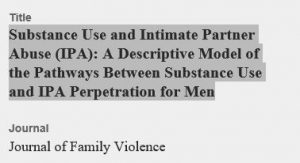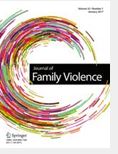We are excited to share the findings from our evaluation of the ADVANCE integrated perpetrator intervention for men in substance use treatment
This event will be opened by Nicole Jacobs, the Domestic Abuse Commissioner for England and Wales. You are invited to attend this event which will be held at the Science Gallery, near London Bridge (https://london.sciencegallery.com/) on Thursday 30 June from 3-4.30pm, followed by a drinks reception till 6.30pm. Details will follow after registration. We hope you are able to join us, to discuss the findings and the next steps for the ADVANCE intervention.
As part of a programme of research funded by the NIHR https://www.kcl.ac.uk/research/advance, researchers from King’s College London, the Universities of Edinburgh, Bristol, Manchester and York, and RESPECT developed and tested a 14-week group intervention, the ADVANCE intervention, to reduce abusive behaviour towards a female partner by men in substance use treatment. Despite the higher prevalence of abuse among this group, men who use substances are rarely referred to perpetrator programmes and when they are they often drop out early. Our research has highlighted the complex relationship between substance use and abusive behaviour including intoxication, withdrawal and craving, and financial abuse. Delivering targeted integrated perpetrator programmes to men in substance use treatment will increase their reach, promote positive relationships and improve the wellbeing of survivors. During the pandemic, we adapted and tested the ADVANCE group intervention for digital delivery (ADVANCE-D) over 32 sessions which includes video group sessions, online practice sessions with a digital coach and individual coaching sessions with a group facilitator. The ADVANCE intervention also provides parallel support for current or ex female partners.
Please register for this free event here https://www.eventbrite.co.uk/e/advance-dissemination-tickets-350451197967 If you are not able to attend but could do remotely please email gail.gilchrist@kcl.ac.uk


